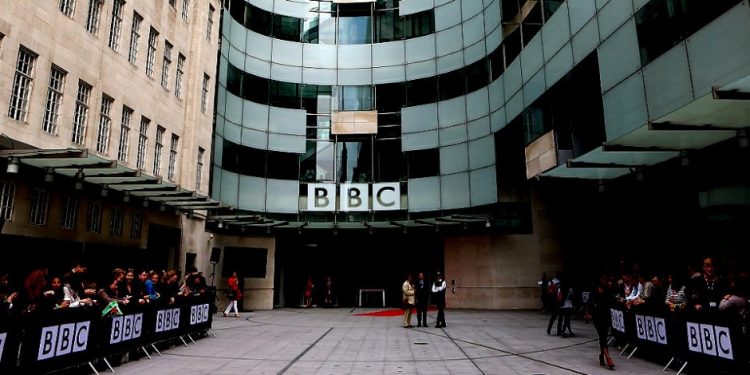London: A female news presenter who is pursuing an equal pay claim against the BBC gets one sixth of the fee earned by a male presenter, an employment tribunal heard Wednesday.
Samira Ahmed, who fronts Newswatch, was paid a fraction of the sum received by Jeremy Vine for presenting Points of View — both viewer right-to-reply shows.
But the BBC argues that the programmes are not comparable, saying Newswatch is serious while Points of View is an entertainment programme.
The claim comes amid increased focus at the British Broadcasting Corporation on the size of top stars’ pay and whether female stars are getting comparable amounts.
The BBC said Points of View requires the presenter to deal with issues “in a light-hearted way” — and so its presenters have historically been “well-known figures in the world of light entertainment”, meriting a higher market fee.
Newswatch “deals with matters seriously” on the “relatively niche” BBC News channel, and is only repeated on the main BBC One channel during the Saturday breakfast show “to fill out the programme”, the corporation said.
The 15-minute weekly “Points of View” show started in 1961 and features viewers’ praise and criticisms across the whole spectrum of BBC programmes in a dry, humourous style.
Newswatch, a 10-minute weekly programme, started in 2004 in an attempt to make the corporation’s news output more accountable, and gives viewers the right of reply on news coverage.
Ahmed has presented the show since 2013 and questions editors responsible for contentious stories.
Ahmed started fronting Newswatch in 2012 on 440 pounds — the same as her male predecessor Ray Snoddy.
Her occasional male stand-ins have been paid a near-identical amount.
Vine took over on “Points of View” in 2008 on 3,000 pounds — 500 pounds less than his predecessor Terry Wogan.
The BBC claims pay across the industry is not the same for news and entertainment. Pay has been a hot topic at the BBC for the past two years.
Carrie Gracie resigned as China news editor in 2018 over what she called an “indefensible pay gap” with other international editors at the publicly-funded media behemoth.
The previous year it published for the first time the salaries of its highest-paid stars, following pressure from parliament.
The BBC’s disclosures revealed 12 of the top 14 were men, as were two-thirds earning more than 150,000 pounds.






































